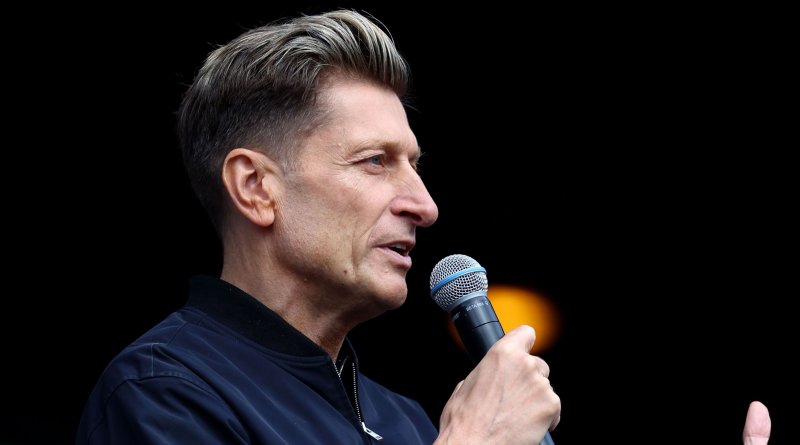Crystal Palace Europa League Demotion Sparks Parish Outrage
Crystal Palace Europa League hopes were dealt a crushing blow this week after UEFA confirmed that the Eagles, despite winning the 2025 FA Cup, have been shunted from next season’s Europa League into the newly-expanded Europa Conference League. Club chairman Steve Parish reacted angrily, branding the decision “one of the greatest injustices” in European football and accusing the governing body of punishing ambition rather than protecting integrity.
Why Crystal Palace Europa League Slot Vanished Overnight
UEFA’s verdict hinges on its strict multi-club ownership regulations, introduced to prevent two teams controlled by the same consortium from meeting in continental competition. U.S. investment group Eagle Holdings, which owns a majority stake in Crystal Palace, recently acquired a significant share of French giants Olympique Lyonnais. Because Lyon qualified for the Europa League via Ligue 1, UEFA considered Palace’s spot a direct conflict of interest and enforced demotion under Article 5 of its rulebook.
Parish’s Furious Response
Parish, never shy of a microphone, called the ruling “draconian, disproportionate and utterly tone-deaf.” Speaking to South London radio, he argued that Palace’s sporting merit—lifting the FA Cup at Wembley after a dramatic penalty shoot-out against Newcastle—should outweigh any technical overlap in shareholdings. He also questioned why UEFA did not simply separate the clubs in the draw, an approach previously used when Red Bull-affiliated sides Leipzig and Salzburg both qualified for Europe.
The Financial Fallout
Dropping into the Conference League could cost Palace an estimated £18 million in guaranteed UEFA prize money and broadcast revenue. Gate receipts will also decline; a packed Selhurst Park against Roma or Valencia in the Europa League is far more lucrative than a midweek date with lesser-known rivals. Director of football Dougie Freedman conceded that summer transfer plans now require “serious recalibration,” admitting that wages earmarked for marquee signings may need trimming.
How Multi-Club Ownership Became a Minefield
Multi-club ownership, once a fringe phenomenon, has become common in the global game, with City Football Group, Red Bull, and 777 Partners leading the charge. Proponents argue that shared resources foster youth development and analytics, while critics warn of diluted competition. UEFA tightened its stance after last season’s uproar involving Manchester United and Nice—both backed by Ineos—although a late share-transfer workaround kept both clubs in Europe. Palace were unable (or unwilling) to find similar solutions in time.
Legal Options on the Table
The South London outfit have 10 days to file an appeal with the Court of Arbitration for Sport (CAS). Palace’s legal team is reportedly compiling evidence that Eagle Holdings’ voting rights in Lyon fall below the 30 percent threshold that triggers UEFA’s clause. CAS historically sides with clear regulatory language, but Parish believes public pressure could sway any panel. “We’ll fight this with every fibre,” he vowed.
Fans, Players and the Dressing-Room Mood
Captain Marc Guéhi admitted the squad feel “gutted” yet vowed to channel frustration into their Premier League campaign. Supporters’ group Holmesdale Fanatics plan a protest march before the first pre-season friendly, demanding both UEFA transparency and Premier League safeguards for English clubs caught in similar webs. Social media hashtags #JusticeForPalace and #LetPalacePlay trended hours after the announcement.
Wider Implications for European Football
The Crystal Palace Europa League saga is more than a one-club story. It underscores a growing tension between football’s commercial reality and regulatory frameworks designed for simpler ownership models. With private equity and U.S. investors flocking to Europe, UEFA may soon be forced to revisit its statutes or risk regular courtroom battles that undermine its competitions.
Could the Conference League Be a Blessing in Disguise?
Some analysts argue that a deep Conference League run could still boost Palace’s coefficient and give emerging talents valuable minutes. Manager Oliver Glasner, who lifted the Europa League with Eintracht Frankfurt in 2022, struck a pragmatic tone: “It is not the tournament we earned, but it is still Europe, and we intend to win it.”
Timeline of Key Events
• May 24, 2025 – Palace beat Newcastle to win FA Cup
• June 18 – Eagle Holdings announces 25 % stake in Lyon
• July 2 – UEFA opens ownership compliance review
• July 29 – Governing body confirms demotion to Conference League
• August 8 – Deadline for CAS appeal
Parish’s Call for Reform
In an open letter to UEFA President Aleksander Čeferin, Parish proposed a sliding-scale system where minority shareholders could retain European eligibility if governance firewalls exist. He also urged transparent public hearings rather than closed-door verdicts. “Football belongs to fans; decisions that reshape seasons shouldn’t be delivered by email in the dead of night,” he wrote.
Opinion: Justice or Bureaucracy Run Amok?
UEFA’s intent—safeguarding competition integrity—is laudable. Yet this case feels like using a sledgehammer to crack a walnut. Palace earned European promotion on the pitch; penalizing them for investment that strengthens another historic club seems counterintuitive. Unless UEFA modernizes its rulebook to reflect the sport’s financial ecosystem, more clubs will find themselves punished not for cheating, but for daring to grow. The essence of sport is merit. Regulations should protect that, not override it.
Your global gateway to nonstop football coverage:
News Goal
Share this content:

